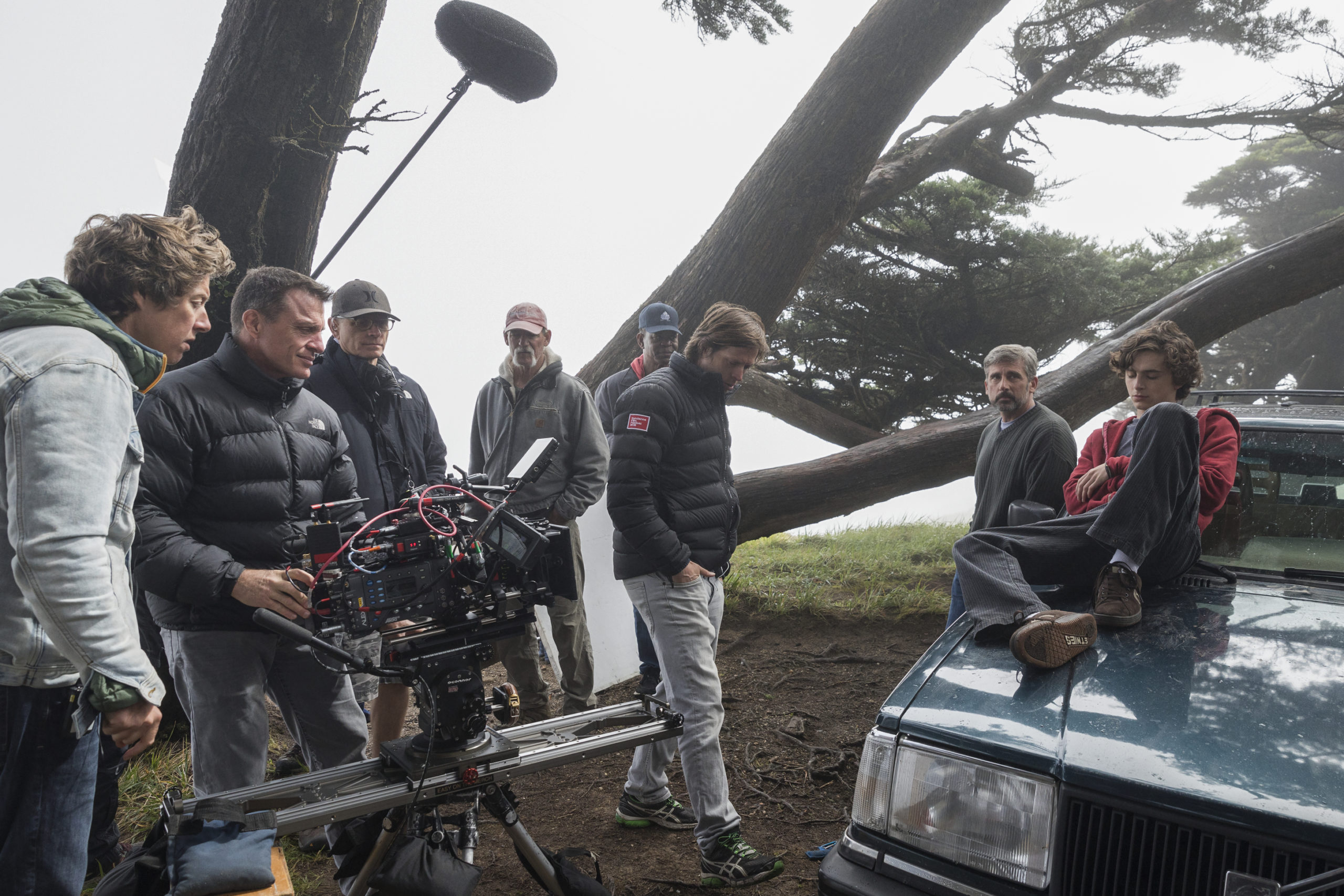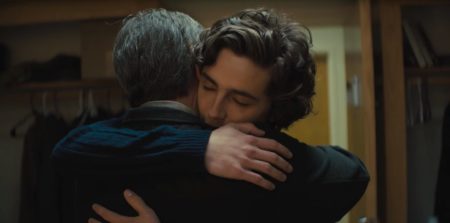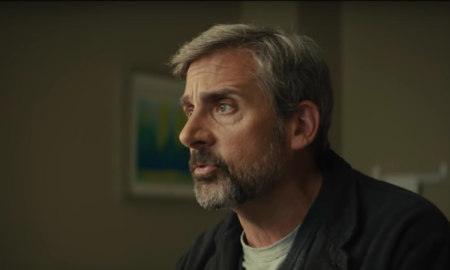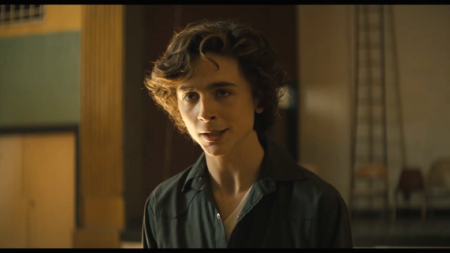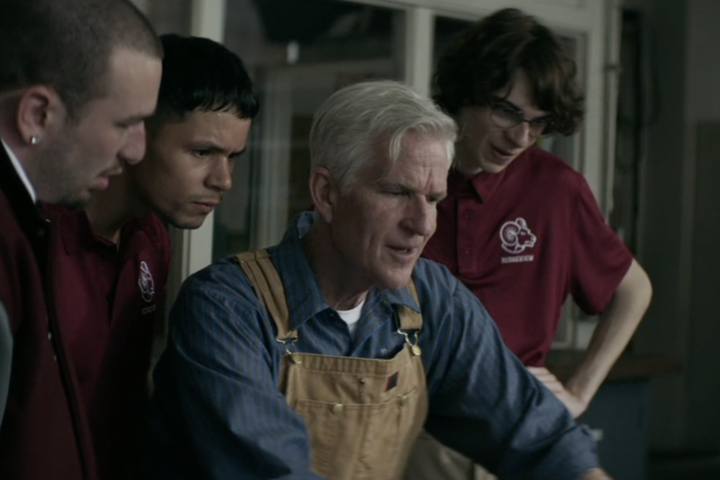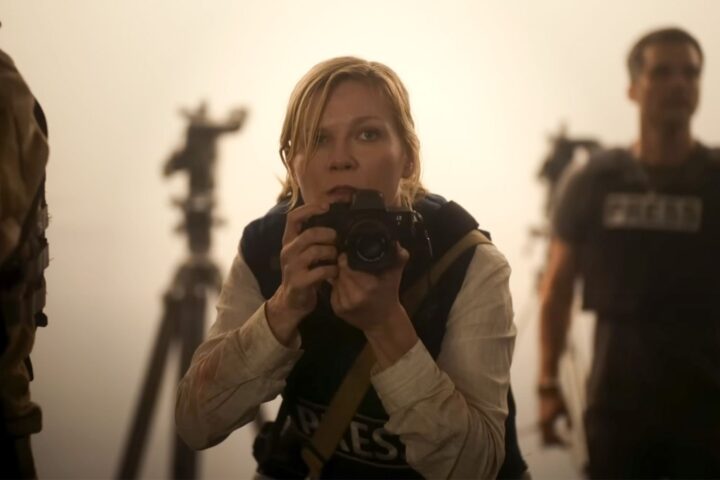Felix von Groeningen’s Beautiful Boy takes a harrowing look at a family torn apart by meth addiction. Based on a true story—two of them, actually—and acted by a career high Steve Carell and a powerful Timothée Chalamet as father and son David and Nic Sheff, caught in cycle of recovery, relapse and wreckage, it’s a picture that employs an investigative search for answers in a spiral that doesn’t offer any. And that, perhaps, is its greatest strength.
Von Groeningen, the Belgian filmmaker whose Oscar-nominated 2012 drama The Broken Circle Breakdown dealt with loss and family through the context of musicians struggling with a stricken child, keeps his camera trained closely on his actors who struggle, valiantly, to grow, evolve and find peace in a situation of despair. Yet there is catharsis in Beautiful Boy, albeit rarely so hard won.
I caught up with Felix von Groeningen recently to chat about the film’s cast, themes and his own connection to the material, growing up in a non-traditional family and searching for an ideal that, in his movies, is frequently shattered.
For some time you had wanted to make a film in English. Why this one?
Felix von Groeningen: I had a movie that was the Belgian Oscar submission in 2009 and I met people in Los Angles and the ball started rolling. But I wanted to do it the right way and continue making films in Belgium. And then this project was pitched—the idea of making a movie based on books by a father and son. I was intrigued by the pitch because it had many elements that interested me, and I connected with it on several levels. On the detail level I fell in love with who that family was, and then with the macro story of the problem of addiction and sharing David and Nic’s experiences to create awareness. The books made me see that while I had seen addiction in my family, we did not have the tools to deal with it. So it really felt like the right thing to do for a lot of different reasons.
It must have been daunting to merge two memoirs, each with a distinct point of view.
FG: The most challenging part was the volume of content. Often there’s so much that adapting really must bring down, and you love so many scenes that don’t find their places in the movie; you need to compress them. With two it was even more with the double the number of scenes. What (co-writer) Luke Davis and I wanted to grasp was what had happened, so we made timelines of each (story) and like detectives we figured out what happened. David’s arc, which is mythic, is the father trying to save his son while questioning where he went wrong. And then Nic’s arc was to really feel viscerally what it’s like to be addicted, how hard the struggle must be and how relapse is always lurking around the corner. Feeling what he goes through is what mattered and making the audience feel it.
As in your Oscar-nominated The Broken Circle Breakdown, you’re exploring a family tragedy of sorts, and asking your characters to face this and figure out how to make it through.
FG: The characters do find a way to deal with it. They sort of reach a point where they can accept it and move on. So both are tragedies, but they have a catharsis. I could not do them if there was not, or if there were not life-affirming scenes. (Beautiful Boy) is about a family that believes in unconditional love and I find it so inspiring. It’s hard to see them go through this ordeal but they come out stronger. I wanted to do it for that reason. The psychologist in me would probably say that I come from a family that had different lives and that the core of our family only existed for a brief moment, so I have this ideal of a family that I lost early on. We all stayed close somehow and got through it, but there is that ideal of a family for which I still long. I want to have a family and believe in unconditional love and everlasting family. I think it comes from that. It always starts like that—and then life happens.
The film holds its mysteries. It plays with structure and memory in intriguing ways. For example, it does not address the black hole that Nic is medicating with drugs; it refuses to provide a pat answer for where it began, and this is addressed in a scene where he is clean and speaking to a group. You mention catharsis. Do you think the film is hopeful? I was heartbroken by a scene in a hospital hallway near the end.
FG: That is something we came to quickly in the script development. It was clear it had to be authentic, and we didn’t want to tie it up in a bow. Yet we needed to reach a catharsis. It is a place from which they can start over. And that is the what I find inspiring. (In that scene you mention) there is nothing to say. They have gone through everything and yet David is there; he does keep showing up. The other lesson that Nic learns in a hard way is that relapse is part of recovery. It is not everybody, but it is a step towards controlling it.
One more thing about showing up. David keeps showing up, against odds, to fix anything. The movie explores the idea of unconditional love and lengths you will go to, even when you think you can’t make a difference. And then it says there is a limit; that it can’t go all the way anymore.
FG: Because it can’t affect the rest of the family. That is the point David starts to realize, which is that he can’t be there for Nic if he’s destroying himself and the rest of his family.
This is an actors’ film. Can you share a bit on your leads?
FG: I’m a director who loves working with actors. It’s the most joyous thing. It is what I love. It was fascinating to see how they both got into the process differently. Timmy, with all his young energy and ambition- we did rehearsals for two weeks. I love to workshop the script and rewrite it and make it ours and create a confident space from where we can go on to shoot. So during rehearsals we have the time to make it better, if we do like it we don’t need to do it a million times. During that process, in the first couple days, Timmy came with so much stuff, like all these ideas and he was just giving and giving. Steve was just sort of reading it; kind of flat, and letting it happen and letting it roll over him. They each come from a very different place and it made sense with their characters and who they are, and where they are in their careers.
David is very cerebral, and a lot is internal, and Steve agreed that he wanted to keep it close to who he is in real life, and let it come from him thinking about himself as a dad. I think Steve is incredibly talented and he has this relatable quality that is so important for this film. And at the same time, he is very earnest and sincere. But he did not want to overplay it; he wanted it to come to him. And he was amazing when we were shooting. Timmy was trying to streamline it. He needed to go to extremes and his genius lies in his fearlessness. You could not pull it off without that. But what he always does is finds humanity, even if he goes extreme.
Can you direct that, though? For example, when he’s lying on the floor in the bathroom. Do you modulate that? Or does that come from him? Do you negotiate those extremes?
FG: Every day is different, and every scene is different. Sometimes it’s just about the emotion of it and sometimes it’s very practical; like where to lay your head so that it looks good in the frame. That is not about emotions because he will do it right, but it is about getting it right in the frame. So that can be very specific directing. But other scenes, like the 12-minute diner scene, which is shorter in the movie, we did that one over and over and the process of getting there during rehearsals was finding beats and rhythms. In those scenes I can’t give precise directions. It is really in getting the basis and structure right and everybody getting on the same page as to what the scene should be. I can direct the mood, but they must do it. They are the ones who must be in sync as characters and actors.
Maura Tierney has a terrific scene in the film where she is driving around chasing Nic. It goes nowhere by the end of it, which is the point. It’s an absolute frustration. Amy Ryan also doesn’t know what to do. It calls into question how much you can or should know about your teen, and how something gets lost at some indefinable, adolescent point and you go from being your kid’s best friend to not knowing them to chasing them.
FG: Yes. What is fascinating about it, and I had this with my parents too, is that we were more friends than the parent-son relationship; or you think so. But still, and this happened with David and Nic too, you must go through that process. But it is why David didn’t see it coming and has a hard time accepting it. As David is going through this, you see him questioning himself and where he went wrong. But then it’s more that he is angry that he’s been caught off guard and maybe he is not looking at Nic; his expectations are more important than what Nic is actually going through. There is a cycle where he keeps learning, but it keeps getting scarier and more existential. And then he comes to the realization that he cannot choose for his kid to live or die.
During production you met and collaborated with David and Nic Sheff. How was that dynamic?
FG: They organically opened up and let me into their lives. I visited their house with the crew people and we were able to dig into their private photos use them to create the look and feel of the house and even the costume design more authentic. They were open in letting me in and we became friends over time. But more important than getting it all factually right we needed to get the emotional core right. I am confident that we got there. Sometimes you feel it. I did. And they did too.
What’s the best part about your job?
FG: I never to have to do the same thing. It is either writing or preparing or shooting or editing or doing this. And it’s all very, very different. And these are huge chunks of my life that I spend on stories and things I am interested in and that I learn from. So I’m very grateful for that.
